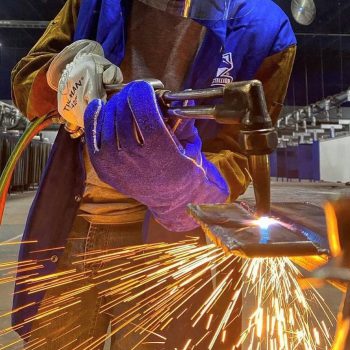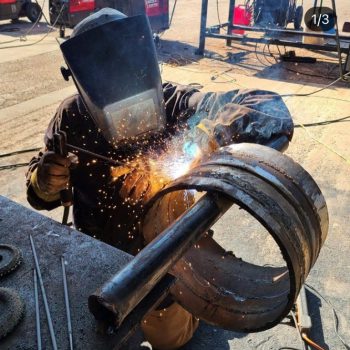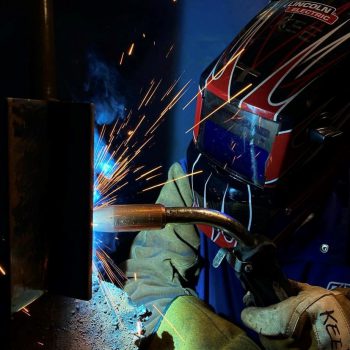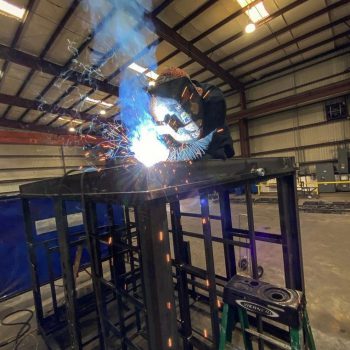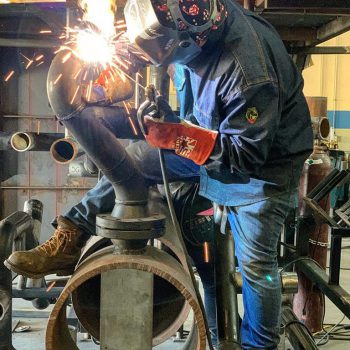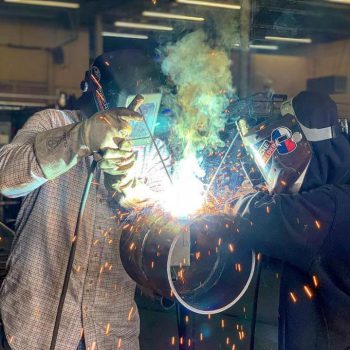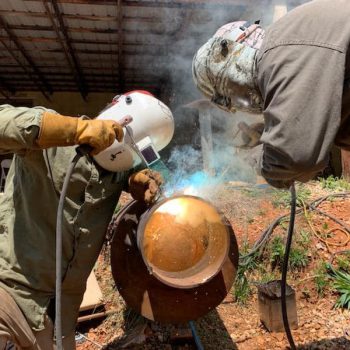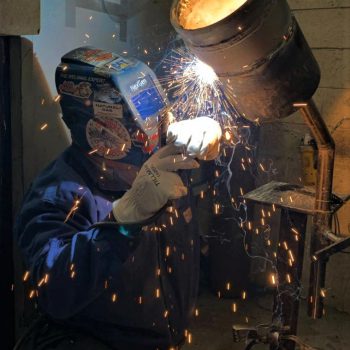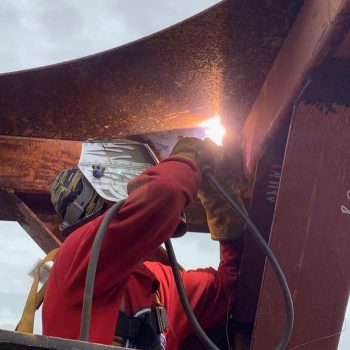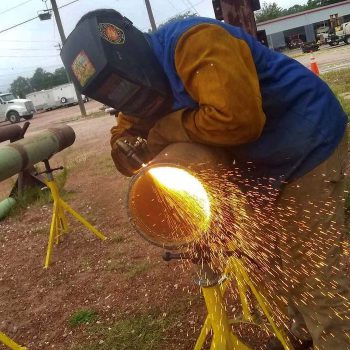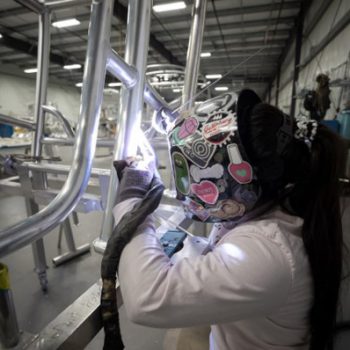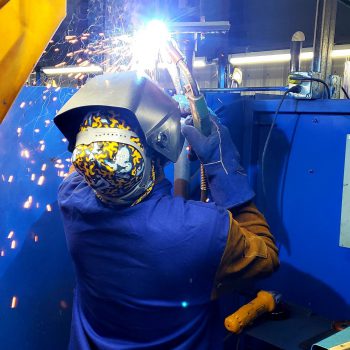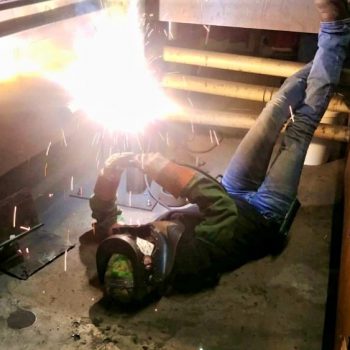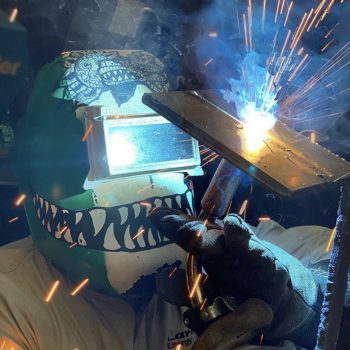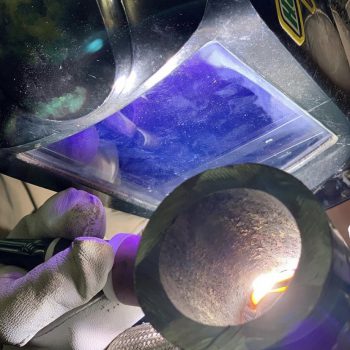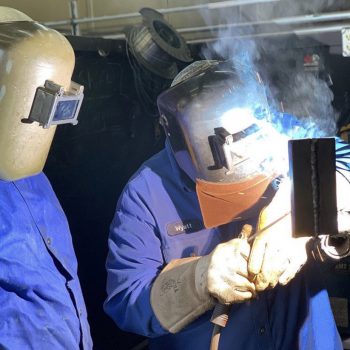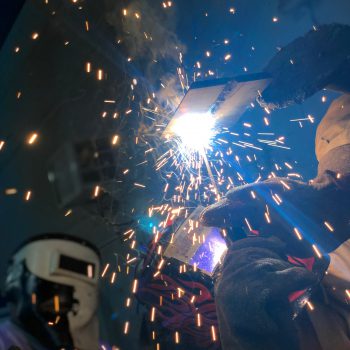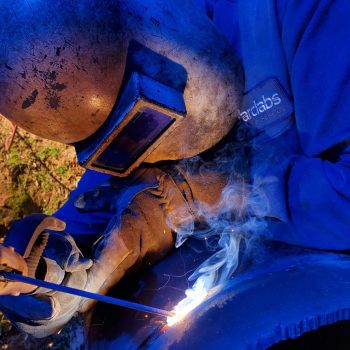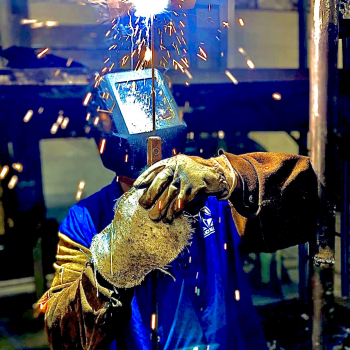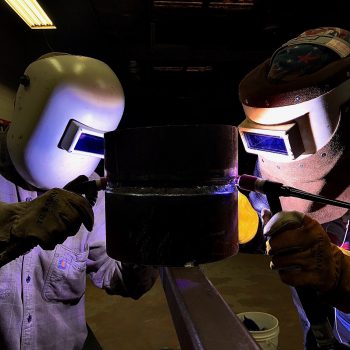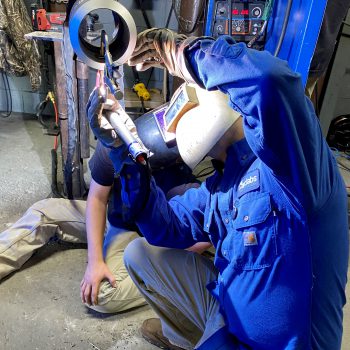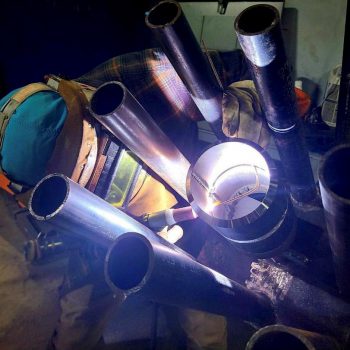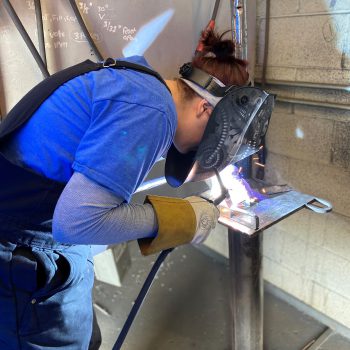What type of skills do I need for a career in welding?
For most companies, the best skill a welder can bring is a good mindset, a willingness to learn, and the flexibility to work on whatever job is needed. This beats someone with great technical welding skills and a bad attitude. In addition, many professionals state the reason for their success is due to their patience, steady hands, coordination and measuring/math skills.
Patience and practice are key traits for welding. Practice, practice and more practice will help you climb the ladder to more interesting welding applications. Patience is needed for the slow climb that it may take. Also, patience while welding. Sometimes speed and productivity are required – other times absolute quality is necessary. Knowing the difference and excelling at both is a winning combination.
Having a steady hand, or knowing how to brace your hand and wrist for precise welds is important. Arm, hand and overall strength is also a requirement. The ability to weld for an 8-10hr (sometimes longer) shift takes endurance and stamina. You may need to work up to this if you aren’t in great physical condition.
For careers in underwater welding you may need additional diving skills. For structural welding – you may need to overcome fears of heights and tight quarters. Picking a welding career that best fits your personality is a good starting point.
Practicing hand-eye coordination will improve your welding skills. Activities like juggling, darts and video games are effective methods. While welding, you will need to hold a welding gun or electrode holder, as well as an electrode, filler metal or workpiece. You may need to do all this while standing, sitting, crouching, or lying down in a weird position. The better your flexibility, strength and coordination, the easier this will be.
Your high school math teacher said you will need math skills for just about every career. Your teacher was right. Knowing that 3/8” equals .375” will come in handy when choosing consumable sizes for a weldment, and knowing how to quickly and accurately measure will ensure your part fit-up is correct and will reduce scrap, re-work and downtime. So yes, having basic math skills will make your welding career much easier.
On a practical level, being punctual, working sober and drug-free and showing up with a great attitude is a great beginning to your welding career.
 877-647-4111
877-647-4111
